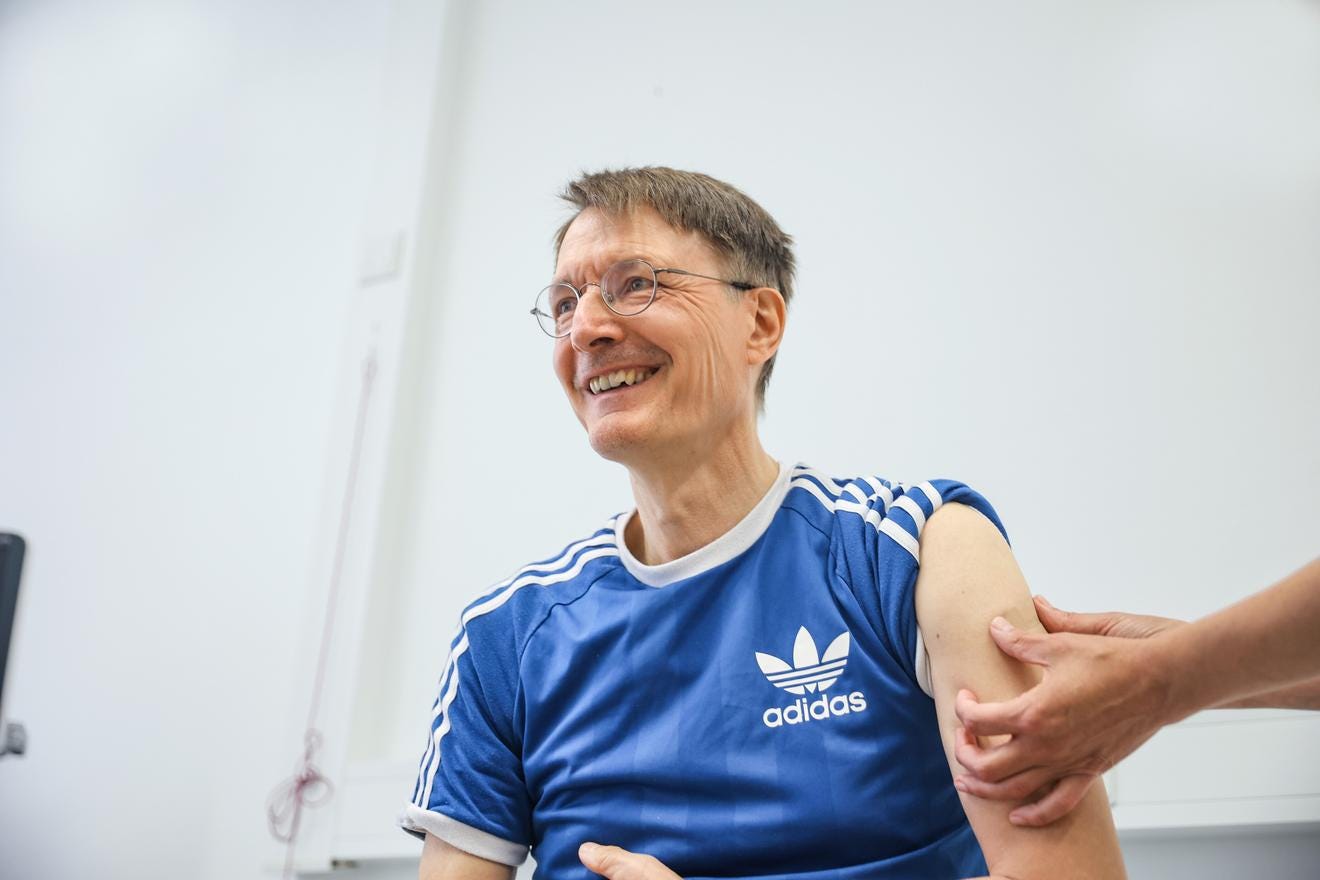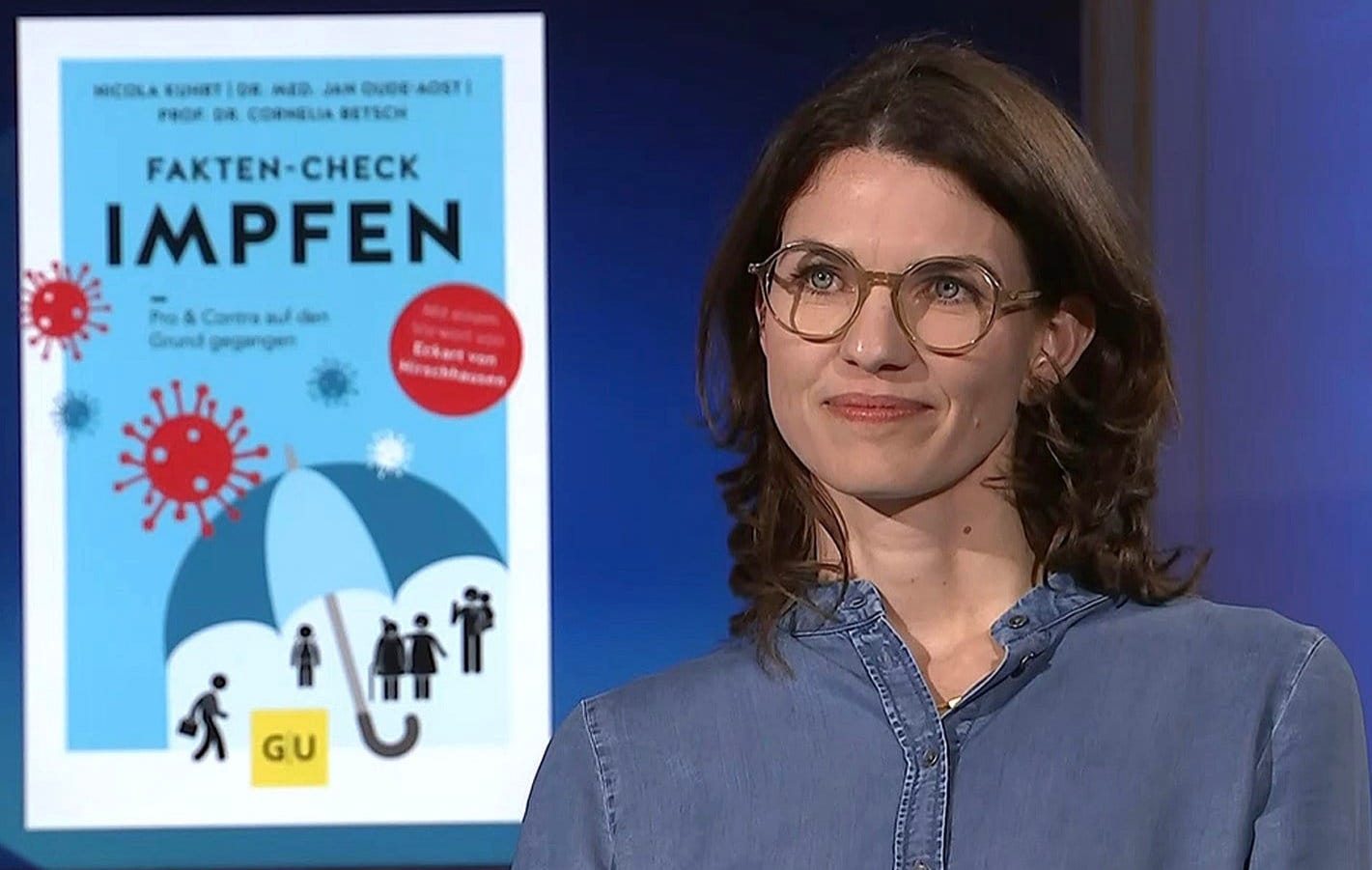Journalists for Die Zeit realise nobody cares about the Covid jabs anymore, pen 2500-word wall of text angsting about German "vaccine exhaustion" and wondering how things can have come to this
Womp womp.
Reporters at Germany’s largest newsweekly, Die Zeit, have suddenly realised that nobody cares about the Covid vaccines anymore. Their whole jabbing circus is over, there are no longer any queues for the latest virus juice, and they find all of this deeply puzzling and disappointing. To come to terms with this unanticipated reversal in the fortunes of their favourite pharmaceutical product, they’ve penned a truly amazing article on the “vaccine exhaustion” afflicting the German public. Across 2,500 words, they ask how it came to be that “so many people have lost confidence in vaccination,” weaving a dense tapestry of vaccine dogmatism, rationalisation, dishonest historical contextualisation and – here and there – rare flashes of self-awareness and even regret.
Please, kick back, pour yourself a scotch, and let us read this revealing monstrosity together.
Our journalists – Maximilian Probst and Jan Schweitzer – begin with last week’s news about the Nobel Prize for medicine, which went to mRNA researchers Drew Weissman and Katalin Karikó. They were sad that the announcement should have been marred by sporadic scepticism from the press; these hallowed award announcements, they explain, are “not usually the place to ask critical questions.” The Science has by now assumed many religious trappings, and there’s just something wrong about marring its solemn liturgies with irreverent queries:
All of a sudden, the press were asking about transparency, trust and the anti-vaccine movement. One Chinese journalist even claimed that the mRNA vaccines … had long-term implications for the vaccinated. Rickard Sandberg, molecular biologist and member of the Nobel Committee, blundered and explained that there had been extremely few side effects in the 13 billion vaccinated people. He meant to speak of 13 billion vaccine doses. His answer probably hasn’t boosted confidence in the vaccines. But confidence is exactly what we need to counteract the vaccine scepticism that is currently spreading both here in Germany and around the world.
A look out of the window of Jens Lassen’s medical practice is enough to see what’s happening. You see a few parked cars, green trees, hedges and brick houses. Nothing special. And that’s the problem: “When I looked out of my window two years ago, there was a huge queue on the street,” says Lassen. “Those days are gone.”
Dr. Lassen, we read, is a general practitioner in Leck, a small town in Nordfriesland. The poor man has been offering Covid vaccines for two weeks, but so far he’s only been able to jab 130 people. At the height of the mass vaccination campaign, he was jabbing at least that many every day. That’s how bad things have gotten for poor Dr. Lassen. It’s a real shame.
Today, Lassen hears questions like: Is it even necessary? Isn’t it harmful to keep doing this? “People don’t wear masks anymore, they go to concerts and go on holiday,” Lassen says. “For many, it doesn’t add up that the pandemic is over but vaccination continues.” …
Indeed, every thinking person should find this odd.
Germans have always doubted the benefits of vaccination, and reports about severe side effects (which of course exist) have been used to stir up opposition. The people who rejected or were sceptical about vaccination for a long time were a small group in Germany. But since the Corona pandemic, this fringe social phenomenon has become a movement with resonance extending far into the centre.
Maybe, just maybe, that has something to do with the shitty nature of the Covid vaccines and the immoderate, irrational radicalism that the vaccinators displayed in 2021. Maybe it wasn’t a great idea to fulminate about vaccine mandates and make vaccine passports a condition for participation in public life. Maybe – as literally every last one of us said at the time – these lunatic hygiene policies would go on to conjure from nothing a massive and enduring resistance movement.
… The German government will likely miss by a wide margin their goal of vaccinating those millions who are at risk from Covid infection this Fall. … The situation with flu vaccines is no better. Here, too, the elderly are the main target group. According to the Robert Koch Institute (RKI), only 43% of those over 60 were vaccinated in the 2021/22 flu season. In general, the vaccination rates for most of the vaccines recommended … for adults are below 50%. Children are also “often vaccinated too late or incompletely,” the RKI reports. Take measles, for example: 95% of children should have received two measles vaccinations before they start school. … Only four federal states achieve this goal.
Child vaccination rates seem to be down across the entire West, not only because of the vaccine scepticism prompted manic Covid vaccinators, but as a direct consequence of virus terror messaging, which kept much of the population cowering under their beds away from hospitals for two years. You’d think, by now, our Zeit journalists might consider that this, too, was a terrible idea, but there’s no chance of that. The real problem is statistical illiteracy and ignorance:
Germans are tired of vaccination – of Covid vaccines, flu vaccines and measles vaccines. And that has a lot to do with the fact that not many people can deal with statistics. Medicine is always about probabilities. Many patients when they’re prescribed a medication don’t know this. Most of the time, the medicine works, but sometimes it doesn’t. Or there are unpleasant side effects. And occasionally, rarely, very rarely, dangerous or even life-threatening side effects. Everyone who has ever read an instruction leaflet knows these risks. You accept them because the disease seems worse than the possible consequences of the treatment. With vaccination, it’s different: someone is vaccinated against something they have not yet contracted. That is probably what makes people so hesitant. They see the possible risk – and suppress the fact that the vaccination minimises another risk.
Perhaps our journalists are the ones who need to brush up on their statistics. Even according to official adverse event and SARS-2 mortality numbers, the vaccines had no upside for healthy people under 50. At some level, Probst and Schweitzer seem to know this, because they proceed immediately to talk not about Covid, but about the grave risks posed by a great many other viruses like measles, smallpox, polio, hepatitis B, diphtheria and tetanus. Whatever you think of the older vaccines against these pathogens, the Covid jabs are objectively worse. In their poor side-effect profile and their inability to do much about transmission, they’re basically livestock vaccines, which is the main reason the vaccinators spent all of 2021 treating us like cattle.
After cycling through the standard vaccinator nostrums about our great (and increasingly distant) victories against viruses like smallpox, Probst and Schweitzer lament that the pandemic was a “missed opportunity” to increase public enthusiasm for madly jabbing millions of people for no reason. They actually write that the vaccines “gave people back their normal lives,” forgetting that it was not any virus but the Federal Republic which took our normal lives away from us, and which gave them back only very slowly and reluctantly , long after uptake had flatlined.
… The fact that so many Germans got vaccinated ensured that infections were milder – and that immunity to the virus could build up in the country. People could go to restaurants again, dance at the club, cheer at the stadium, celebrate Christmas with their grandparents.
Germans could have done all of these things throughout the pandemic too, and with nary a vaccination. Alas, pandemic-era vaccine “euphoria” (if it was ever truly here) has vanished. “Vaccination saved millions of lives, and millions now reject it. How can this be?”
To answer this question, they bring in an odious psychologist and nudge-expert named Christina Betsch. We first met the stupid Dr. Betsch two years ago, when she was eagerly advising the German government on how best to manipulate the public to line up for more jabs.
Keep reading with a 7-day free trial
Subscribe to eugyppius: a plague chronicle to keep reading this post and get 7 days of free access to the full post archives.



